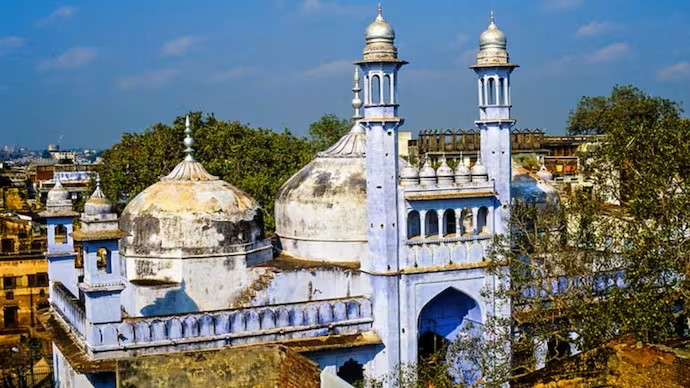Prayagraj: The Allahabad High Court on Tuesday heard a plea challenging a Varanasi court’s decision not to direct the Archaeological Survey of India (ASI) to conduct a survey of the ‘wazukhana’ (ablution area) in the Gyanvapi Masjid complex. The court asked the petitioner to file an affidavit detailing similar documents previously submitted by other plaintiffs involved in the ongoing legal battle, reported The Hindustan Times.
The Gyanvapi Masjid, located adjacent to the Kashi Vishwanath Temple in Varanasi, has been a flashpoint of religious tensions since the 1990s. Hindu groups claim that a temple existed on the site before the mosque’s construction in the 17th century, and the current plea seeks permission for a detailed survey of the ‘wazukhana’ to explore its structure, materials, and any remnants that could substantiate these historical claims.
During the hearing, both sides presented their arguments. The petitioners stressed the need for transparency and a thorough investigation to address long-standing grievances, asserting that a survey of the ‘wazukhana’ is crucial to support their claims regarding the temple’s historical presence. On the opposing side, the mosque management argued that conducting such surveys could disrupt communal harmony and complicate the already sensitive legal proceedings.
Justice Rohit Ranjan Agarwal, who presided over the hearing, emphasized the need to conduct any potential survey with respect to the sentiments of all communities involved and in accordance with legal protocols. Acknowledging the region’s history of communal strife, the court noted the importance of balancing historical investigation with the need to maintain peace.
The plea was filed by Rakhi Singh, a plaintiff in the Shringar Gauri worship case, who is challenging the Varanasi district judge’s October 21, 2023, order. The lower court had refused to direct the ASI to survey the wazukhana area, except for the structure that Hindu claimants identify as a ‘shivling’ inside the mosque complex.
The High Court’s upcoming decision on whether to permit the survey could set a precedent for similar disputes across India, highlighting broader issues of religious identity, historical claims, and the intersection of faith and history that frequently lead to conflict. The outcome of this case is being closely watched by both communities as it may shape future legal approaches to such sensitive disputes.
The court has yet to deliver its final judgment, which will be crucial in determining the next steps in this ongoing conflict over one of India’s most contentious religious sites.




